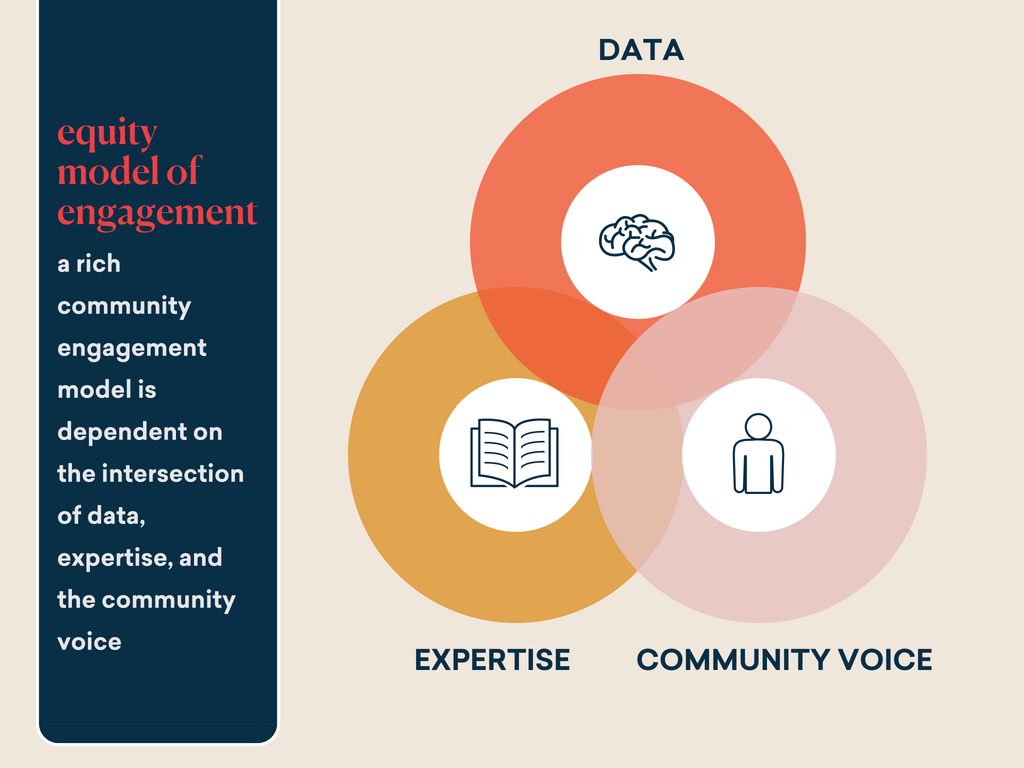Community Engagement - The Role of Self-Evaluation in Strategy and Change for Nonprofit Leaders
It was such an encouraging experience yesterday at the Virginia Volunteerism & Service Conference to have 60+ attendees stand up and make personal commitments to increase the capacity and work of their agencies and organizations to incorporate community engagement best practices. This was the end of my presentation on moving community engagement beyond surveys and focus groups.
True community engagement is a model of co-leadership that includes placing more value on community voice. There are two key moments that it makes the most sense to incorporate community engagement:
Strategic Planning - When done well, strategic planning should include community voices in discovery, planning, and ideation as well as adoption.
Creation of a New Program - Guided by data and expertise, nonprofits often come up with new program ideas that are irrelevant or undesirable to the community. Instead, involve the community in all aspects and test and ask and ask again.
“Community Voice needs to be weighted just as strongly as expertise from scholars, life-long employees, & data.”
The shift that's being called for is to value lived experience not just in data gathering or satisfaction surveys but in the development of plans and goals. Community Voice needs to be weighted just as strongly as expertise from scholars, life-long employees, and data. A solution that the community is not receptive to will eventually fail.
Want to get started, take a self-assessment.
Download our free community engagement self-assessment tool and see where you are.
Class Opportunity
Join for an all day class on community engagement offered by the Academy of Nonprofit Excellence in September. Stay tuned to our newsletter or calendar for registration information.

